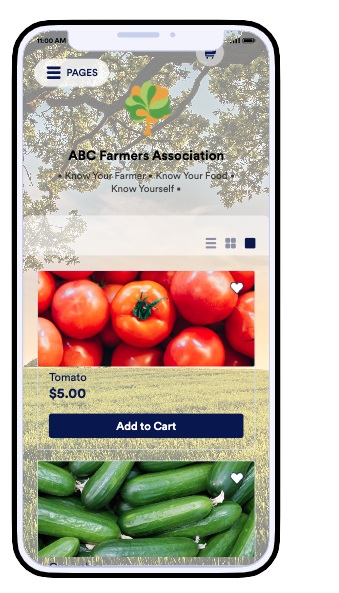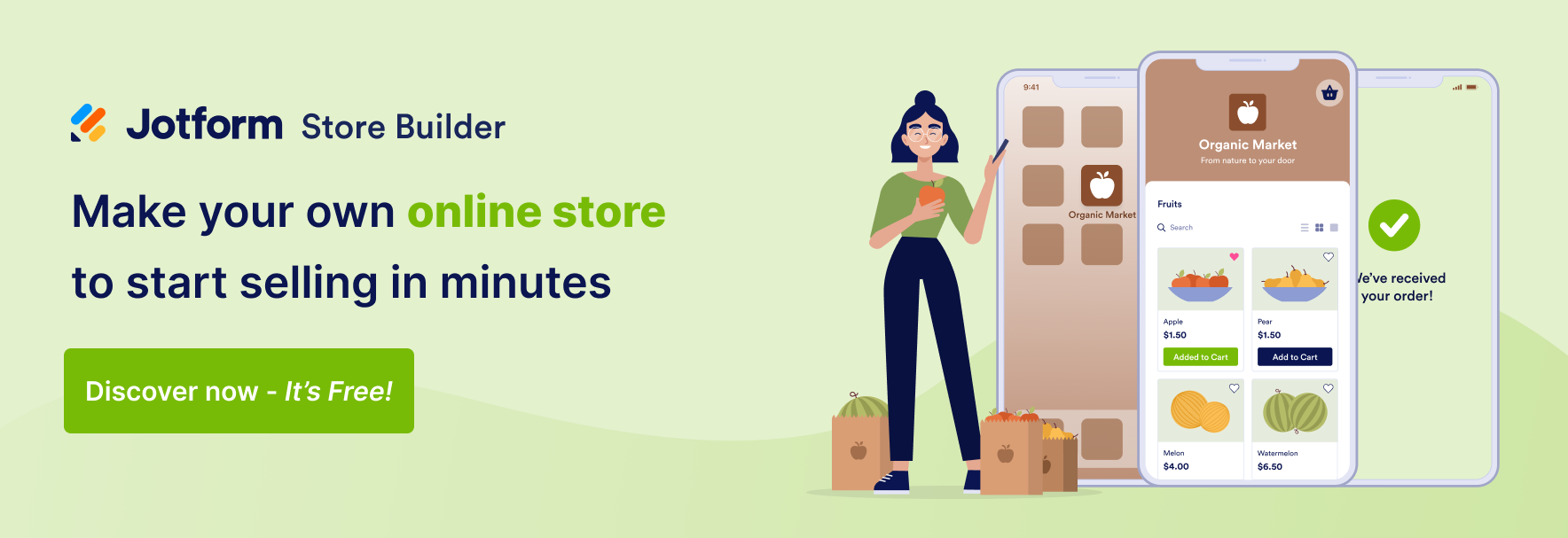On Sunday, March 15, 2020, Governor J.B. Pritzker of Illinois ordered restaurants in his state to close their dining rooms in response to the COVID-19 pandemic. By the following Tuesday, Chicago’s Closed Loop Farms — a microgreen grower that previously sold only to restaurants — was accepting its first-ever online orders for boxes of local food. Since restaurants closed, 100 percent of the operation’s revenue has come from direct-to-consumer sales.
While the pandemic is over, online grocery shopping is certainly here to stay. In fact, the online grocery shopping market in the United States is increasing, and has grown an average of 15.1 percent each year from 2018 to 2023. It’s expected to continue to increase at a pace faster than the economy overall.
How did Closed Loop Farms pivot so successfully? And more importantly, if you’re a local producer, how can you do the same and learn to sell organic food online?
Here are a few farmer-focused e-commerce lessons we learned from Adam Pollack, founder of Closed Loop Farms.
Diversify your offerings
Some organic farms grow a wide range of fruits and vegetables. They can offer a farmer’s market’s worth of variety with every order. If that describes your operation, you can skip this step.
But many organic food producers, particularly in urban, indoor agriculture, focus on a single crop. Until the coronavirus reached the Midwest, Closed Loop Farms only offered microgreens.
That was a problem when they pivoted to direct-to-consumer sales. Few families are willing to place an online order for a single food product, Pollack realized. If you’re in the same situation, do what Pollack did: Partner up.
“We organized a meeting that started with our friends at Plant, (an indoor farming facility on Chicago’s South Side),” says Pollack. “From there, we started bringing on additional vendors outside of Plant.”
Soon, Closed Loop Farm’s online ordering system was offering products from around 20 local vendors, including Windy City Mushrooms, Wilder Fields, and Catalpa Grove Farm. The variety allows customers to do all their shopping for organic, fresh, and/or local food in one place, while producers get to pool delivery resources to a shared customer base.
Determine which e-commerce platform works best for you
Setting up your e-store might be the hardest part of accepting online orders. In Pollack’s experience, local and organic food producers have two choices, neither of which is ideal.
“Do we choose the small companies that, for software companies, are behind [on technology], or do we take something that’s cutting-edge software but isn’t built for a farm operation?” Pollack says.
There are a handful of e-commerce platforms designed for farmers: Barn2Door, GrazeCart, and Local Line are a few examples. But they’re unlikely to compete with an e-commerce giant like Shopify in terms of third-party integrations, detailed reporting, and streamlined user experience.
However, even high-tech platforms like Shopify have drawbacks for small-scale organic farmers, who harvest and ship food on very tight schedules. If you’re operating your own deliveries throughout a limited area with a small team, you can’t visit every neighborhood every day. Instead, you send out orders by region, assigning a different delivery day for each.
“Shopify’s not really equipped to take someone’s ZIP code and tell them, ‘You can only place orders for Friday,’ ” Pollack says. The farmer-focused platforms frequently do offer such regional delivery features, but they’re less likely to, say, integrate with Quickbooks or inventory software.
So what’s the local food producer to do? Luckily for Pollack and other organic food producers, there is now a third option: Jotform Store Builder.
This e-commerce solution is ideal for those who have limited experience with building online stores because absolutely no coding is required. Jotform Store Builder is easy to use while offering advanced features online organic food businesses need, such as
- Flexibility. Jotform Store Builder can be integrated into your existing WordPress website or used on its own.
- A huge variety of store templates. With over 100 templates, organic food farmers can find one that works for their business.
- Advanced functionality. Necessary e-commerce store features like product lists, product images, videos, and more are easy to install using the 80+ widgets that come with Jotform Store Builder.
- Payment gateway options. Customers want choices when it comes to making payments. With over 25 payment gateways to choose from — including PayPal, Square, Stripe, Apple Pay, Google Pay, and more — you can choose the payment platform and methods that work for both you and your customers.
- Branding elements. To create a cohesive branding experience, farmers can customize the look and feel of their online store with the appropriate colors, logos, and other visual elements.
Before you make a final decision on your e-commerce platform, think through the questions you need answered and interview a few e-commerce developers. “Walk through the process, from the customer’s purchase to the time the item is delivered,” Pollack says. “Write down every single step and what your ideal situation would be for that step. Then ask the companies, ‘What does this step look like [with your software]?’ ”
Here are a few more questions to ask e-commerce providers before subscribing:
- Does the platform integrate with other third-party tools you’re using, e.g., contact forms, delivery route optimization apps, and/or accounting software? Jotform offers hundreds of integration options to make store operation and management seamless.
- Do users have to sign up for an account before placing an order? If so, you may lose sales from customers who’d rather not have to remember yet another password.
- What sorts of bugs crop up in the software? All software has bugs, and developers should be honest about what you can expect to go wrong, along with all the great features of their product.
Thoroughness at this stage avoids a lot of headaches down the line. Before you sign up for any e-commerce service, ask the tough questions. “Be polite, but be very straightforward about what your expectations are and what you need,” Pollack says.
If you’d rather skip the whole e-commerce platform rigamarole, of course, you could simply embed a Jotform order form into your existing site. That’s what California organic meat grower Napa Grass Farmers did, and they found that the setup meets their needs exactly.
Keep your logistics processes flexible
Closed Loop Farms has the benefit of a 10-person staff, temperature-controlled storage facilities, and its own fleet of delivery vehicles. You might need to hire delivery staff or contract with a third-party food delivery service to get your organic produce to your customers’ doorsteps. However you handle delivery, your new logistics process must be flexible.
When selecting an e-commerce solution, be sure to consider whether it has any features to help you manage or oversee logistics and operations. For example, with Jotform Store Builder, all online orders are stored in Jotform Tables, which makes it easy to get a birds’-eye view of sales, generate different types of reports, and oversee operations.
“So many little things we have to figure out on the fly,” Pollack says. “Take the way we pack boxes. We have to come up with a system for how we pack boxes efficiently in an assembly-line fashion and make sure that everything gets packed correctly and double-checked.”
Be prepared for mistakes when you’re abruptly pivoting to an entirely new business model. If a process doesn’t work, fix it and move on.
Keep in mind that, even at the height of a global crisis (make that especially at the height of a global crisis) your audience is ravenous for fresh, high-quality produce. Closed Loop Farms is thriving in a tough economy, despite being compelled to abruptly pivot from a B2B to a B2C business.
“The service that we’re offering is really resonating with people,” Pollack says. “We’re getting a lot of really great feedback from our customers. We’re getting a lot of repeat customers, people ordering every single week.… Either way, in terms of being a food producer, [selling online] is just a good move for the direction of our company.”










Send Comment: